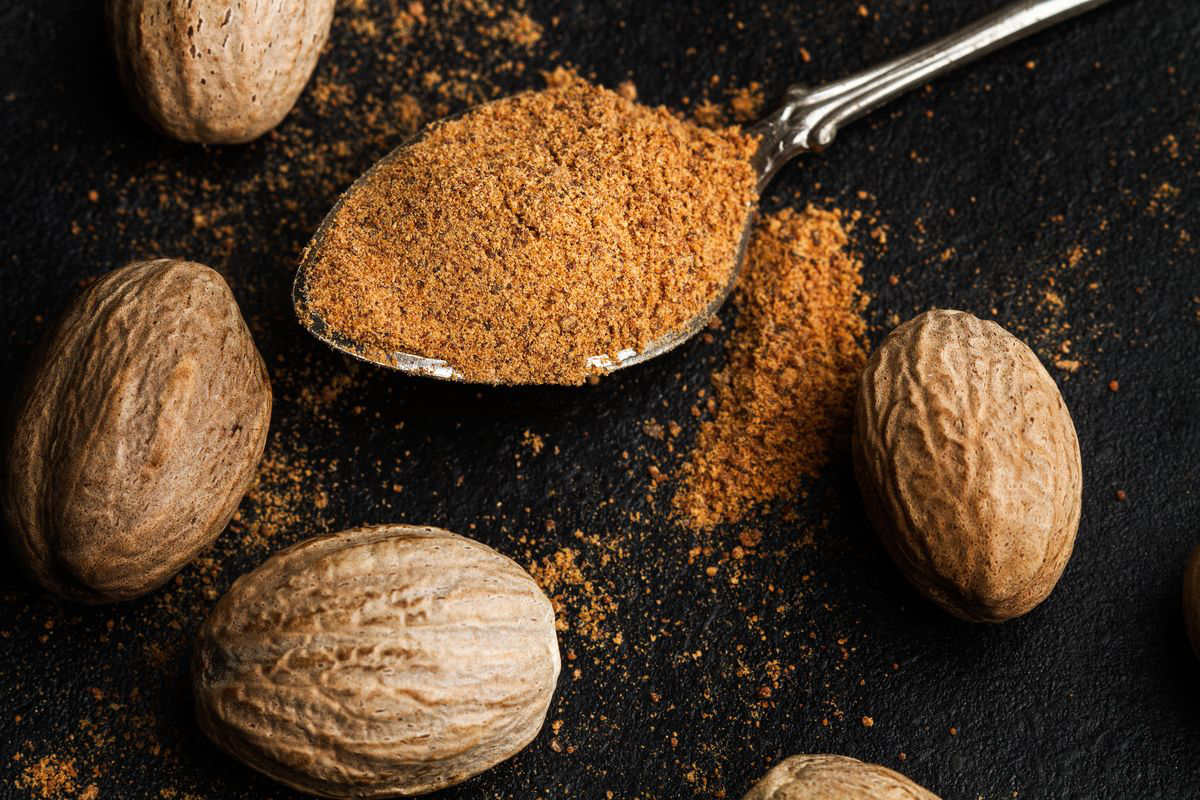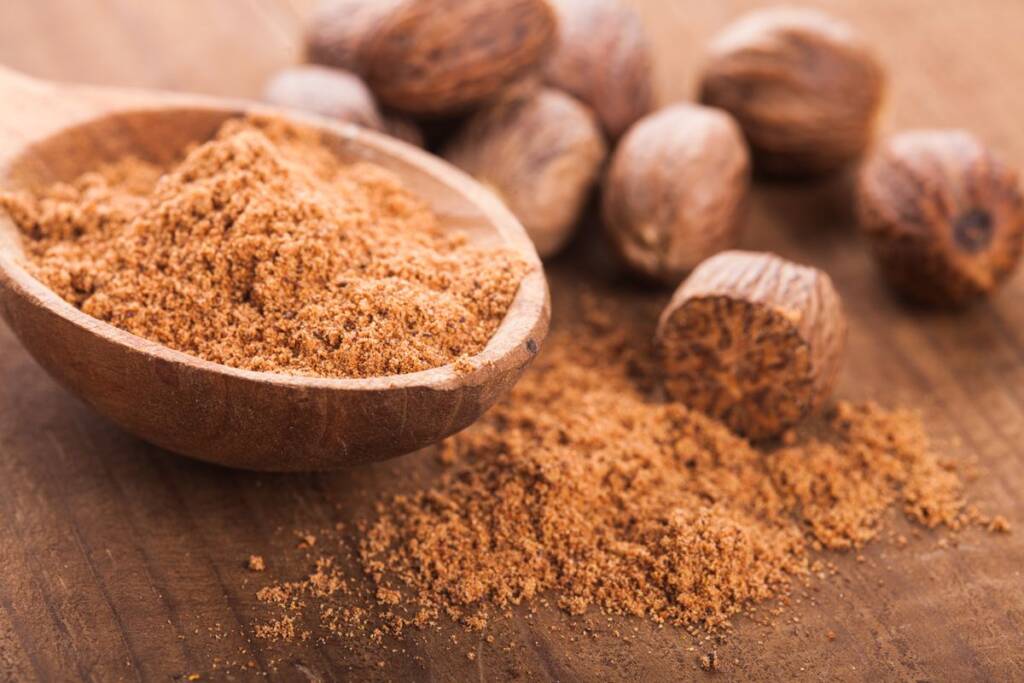Food
Nutmeg: all the benefits and side effects of this spice

Nutmeg is a spice with numerous beneficial properties, but it also has several side effects: let's see what they are.
Nutmeg is the hulled seed of the Myristica fragrans tree, typical of the Moluccas Islands, in Indonesia and today cultivated in the intertropical zones, above all in Malaysia and Grenada. Nutmeg is used as a spice , as is the fleshy covering of the seed, which is called mace. Excellent to combine with milk, cheese and meat, it has become a must in the kitchen all over the world.
The flavor of this spice is very particular and is well suited to both sweet and savory dishes. On the market you can find both the whole seeds (ready to grate when needed and which keep the aroma better) and the powder. Nutmeg is also used in natural medicine to treat digestive and rheumatic ailments . What many don't know is that it can have serious side effects: in high doses it has hallucinogenic effects and is addictive, just like a drug, and can even cause death. Let's see, then, how to use it safely.
Nutmeg: properties
Nutmeg is not only excellent to use in the kitchen as it has numerous properties and beneficial effects for health, thanks to the presence in it of essential oils and phenolic compounds. Thanks to its antiseptic properties (due to the presence of augenol) it is often used as a remedy for gastrointestinal disorders , such as diarrhea , vomiting and nausea . Stimulates digestion, helps counteract the formation of wind in the intestines and calms colic.
The oil extracted from the walnut is excellent for fighting muscle and rheumatic pains , if spread directly on the affected area. Nutmeg would also have antioxidant and stimulating effects. Thanks to iron and mineral salts it fights free radicals and is also excellent against tiredness and loss of appetite.
Finally, according to popular medicine, this spice has a powerful aphrodisiac effect and is therefore excellent in case of impotence. Regarding the latter effect, however, there is no scientific confirmation.
Nutmeg: side effects
Despite all the listed benefits, this spice is also very dangerous and should always be taken with awareness. In fact, many do not know that nutmeg is toxic if you exaggerate with the quantity. The recommended daily doses are between 1 and 2 grams. Consuming more than 5 grams of nutmeg causes hallucinogenic effects and nervous excitement, due to myristicin and elemicin, which follow the chemical structures of amphetamines and LSD.
In addition to hallucinations , symptoms of altered consciousness, addiction, vomiting, fever and dizziness can occur, just like all other well-known drugs. Doses greater than 10 grams cause intoxication, poisoning and, if no action is taken in time, it can even cause death. Even during pregnancy you need to be very careful, as it could cause harm to the baby.

Nutmeg in the kitchen: how to use it?
Nutmeg is a spice widely used in the kitchen, both to prepare sweet dishes, such as cakes, creams and puddings, and to flavor savory dishes, such as vegetables, meat and eggs . It is often used in the preparation of dishes based on milk and cheese, but it is also excellent in broths and with potatoes. It is a very common ingredient in Middle Eastern and German cuisine, while in Italy it is used above all to flavor the meat-based filling of tortellini and ravioli.
A pinch is often used to add flavor to cocktails and alcoholic beverages. You can buy both the ready-to-use powdered spice and the whole nut. To fully appreciate the aroma, it is advisable to opt for the walnut, to be grated at the moment .
Riproduzione riservata © - WT


 (@laprovenceavecamour)
(@laprovenceavecamour)








